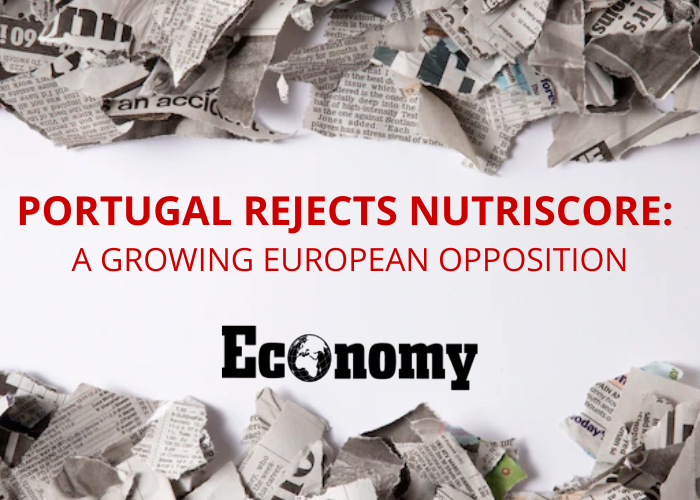Portugal Rejects Nutriscore: A Growing European OppositionBY PIETRO PAGANINI
- 21 June 2024
- Posted by: Competere
- Category: Senza categoria
No Comments

.
Economy published a commentary by Pietro Paganini discussing Portugal’s significant decision to reject the adoption of Nutriscore, a front-of-package nutritional labeling system that has sparked extensive debate and controversy.
.
You can read the full article in Italian on Economy or a summary below.
.
The Portuguese government has chosen not to implement the Nutriscore traffic light nutritional labeling system, deeming it lacking a solid scientific basis for combating diet-related diseases. This decision came in a politically charged context: the outgoing government attempted to introduce it in a last-minute measure before the elections, a move that was immediately blocked by the incoming administration. Numerous stakeholders, including Competere and CSRO, have voiced their opposition to Nutriscore, considering it a scientifically unfounded, outdated measure relative to current nutrition technologies, and detrimental to competition in the European market.
.
Portugal thus joins other European Union countries such as Italy, the Czech Republic, and Spain, forming an increasingly cohesive front representing over 35% of the European population, all opposed to Nutriscore. Even Switzerland, although not part of the EU, has shown support for these decisions through its market activities.
NUTRISCORE INEFFECTIVE AGAINST OBESITY
In terms of effectiveness, Nutriscore has been judged inadequate in combating obesity, as evidenced by data from France, where obesity rates have not decreased despite the introduction of the labeling system. Moreover, from an economic and commercial perspective, Nutriscore could penalize food producers who receive low ratings, negatively influencing consumer perception and reducing sales by 20% in the first six months of implementation.
.
This system could also force companies to alter traditional recipes to meet more favorable evaluation criteria, compromising the identity and integrity of traditional food products.
.
In conclusion, with the arrival of the new legislature and the Hungarian presidency of the EU, greater scientific awareness is anticipated. Additionally, there is hope for a more precise management of food-related health issues, avoiding simplistic solutions like Nutriscore and preserving the prestige of the European agri-food sector.
